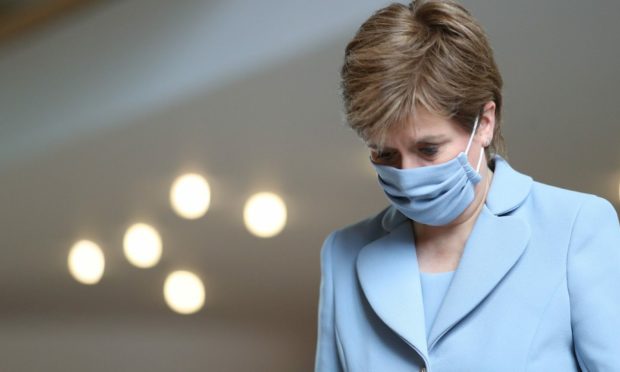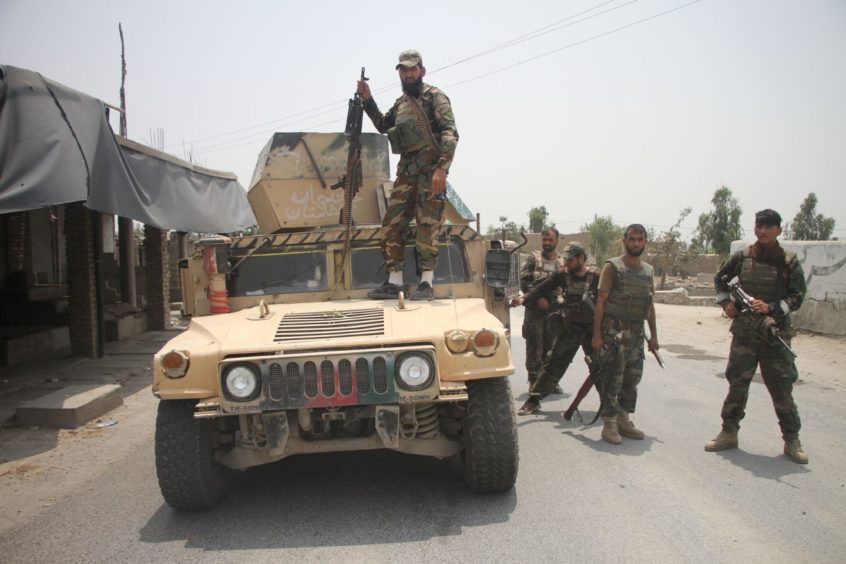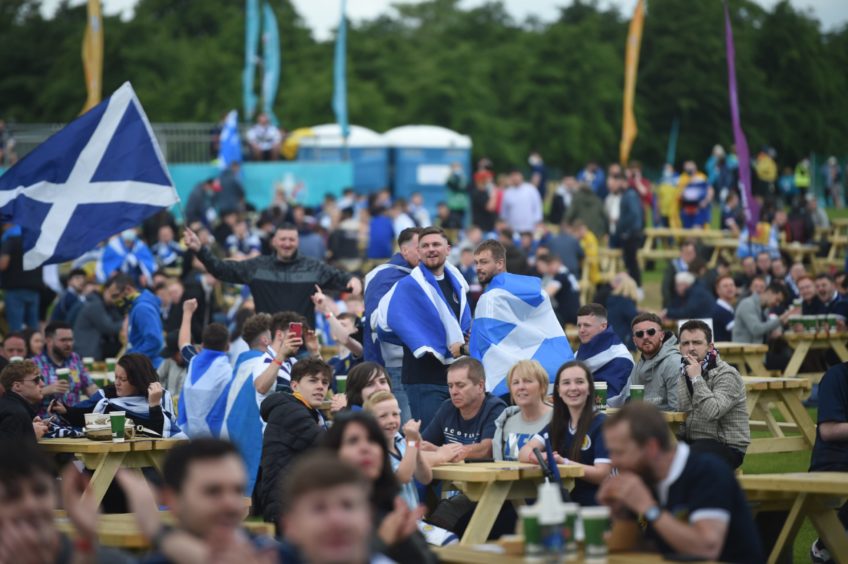“In the race between the vaccine and the virus, we believe the vaccine will win”. So says the First Minister. But in the war against Covid, we are giving in.
Politicians have lost grip on the pandemic. The restrictions have become confusing. The determination to follow the science abandoned.
They likened it to a war, a mission of national importance. In that context, we lost.
The white flag is being waved. The war is over. Now it’s every Scot for themselves.
During the Covid crisis, politicians cooked up a system of levels to describe the severity of restrictions.
It was an attempt to make order out of chaos. Ultimately, it has added to the mess.
We are moving to level zero, on what Boris Johnson calls Freedom Day, but must still wear masks.
Bars must close at a set time. There are some countries you can travel to, some you can’t. Some businesses have reopened but a lot stay closed, shuttered behind furlough.
Covid fight has parallels with Afghanistan
Oddly, this occurs as the west ends its time in Afghanistan.
Another war, another vital mission.
Another withdrawal, conceding ground to the very forces that were once so despicable.
Our leaders are good at crisis, at describing enemies. But not so good at finishing things.
Where we should have built a nation in Kabul, we became bored and left, the work half done.
Eighteen months ago Covid seemed like a new Taliban.
Where once we placed all our trust in the experts of intelligence and military, now we lauded the experts of science.
However the emergency of one day morphed into the obligation of another, ultimately becoming a commitment that defeated politicians by its lack of result.
For all the sacrifice of the last year and half were, as of July 19 2021, we admit defeat.
Delta variant changed the nature of battle
The delta variant broke through to every corner of the land in weeks.
Some of that is down to its own characteristics. Apparently more contagious, with symptoms less virulent, it spread without the level of pure alarm of previous variants.
In that, the bug won. It modified in precisely the way it needed to fulfil evolutionary purpose – to reproduce better.
Science had its success. It knocked the worst of the virus out, for those who got double jabs. It didn’t stop the contagion though.
We can debate who claims the honours in virus versus humanity, but we should discuss first our failings.
Politicians had become tired. Covid required even higher levels of constant attention and crisis management than usual. No wonder leaders were exhausted.
They were also desperate for an out. We couldn’t live like this for ever.
Lives had to get back to normal. Borrowed money couldn’t keep flowing at that rate.
Covid war lost the public’s support
Slowly, Covid morphed into a war, and like all conflicts, support waned.
Much as we have pulled out of Afghanistan without building a state, establishing democracy or protecting human rights, we are pulling out of the Covid conflict without winning or defeating the enemy.
Politicians saw they could never call victory. There would be no end, it was getting expensive and the sacrifice was becoming banal.
So all the talk of unity and national purpose ebbed.
Johnson wanted to open borders, too soon as we can now tell.
Sturgeon wanted to ride a bit of football frenzy and allowed the fan zones to go ahead, a signal that we could all relax.
In truth, both governments have lost control.
Admit what has always been true: the more vulnerable are, by definition, more vulnerable. That’s the harsh luck of life
In different times, the people would be angry and judge it a failure. Today, we don’t have the energy to protest.
Just live with it, we think, and admit what has always been true: the more vulnerable are, by definition, more vulnerable. That’s the harsh luck of life. But life must go on.
The confusion of rules reflects the political state of mind.
Michael Gove says it’s a condition we will just have to live with. Sturgeon that we must relax, but be vigilant. Health Minister Humza Yousaf gives the impression of a man reading statements doubled jabbed against their content.
Covid experts tell a different story
The experts are not exhausted, nor confused though.
A study by Public Health Scotland concluded hospital admissions from the delta variant were twice as likely as from previous types.
“With the way we are opening up, we could see one or two million infections in a highly vaccinated population; that is the perfect environment for generating new variants that might be more resistant to vaccine protection,” says Martin Hibberd, of the London school of hygiene and tropical medicine.
More than 1,200 scientists in a letter to The Lancet have condemned Freedom Day as “ criminal” and “unethical”, warning the political shot for herd immunity may go very wrong.
"It will not be #FreedomDay, it will be a self-inflicted wound…"
As cases rise, @richardhorton1 warns against "a plan driven more by libertarian ideology than prudent interpretation of the data" and calls for continued mask-wearing, distancing, and ⬆️ #vaccine coverage. pic.twitter.com/XDKPsIeoYr
— The Lancet (@TheLancet) July 8, 2021
For all the duelling of Johnson and Sturgeon, both were shot.
Coincidentally, that failure has masked the real effects of Brexit and quelled calls for Indyref2, but that’s just the happenstance of politics.
Perhaps the greater point is that the idea of victory is illusory from the start, and this botched defeat shows big events are always beyond the control of leaders.



